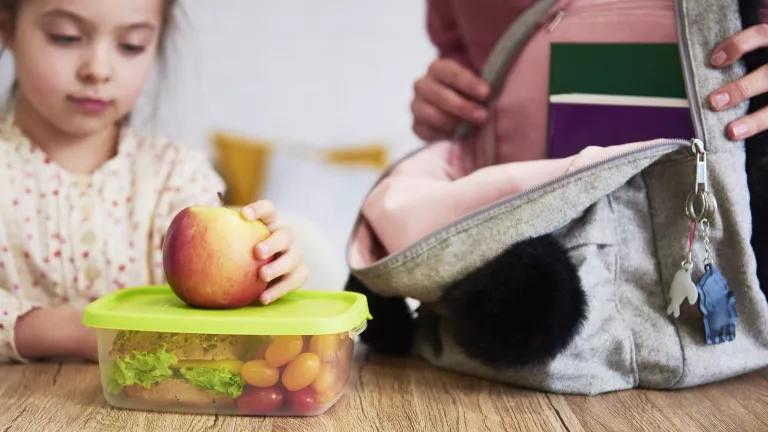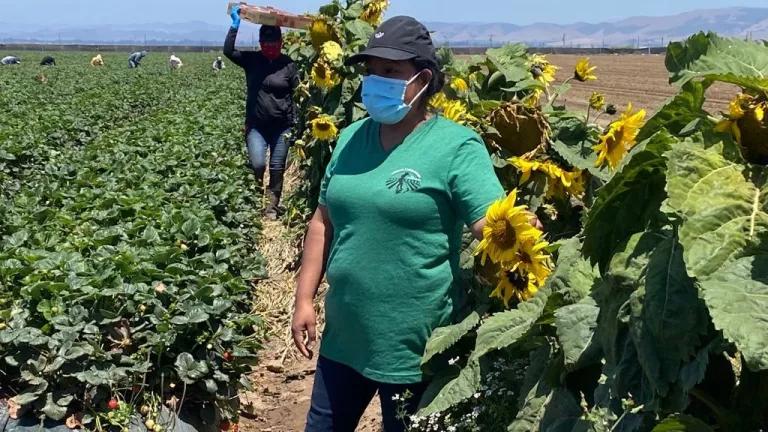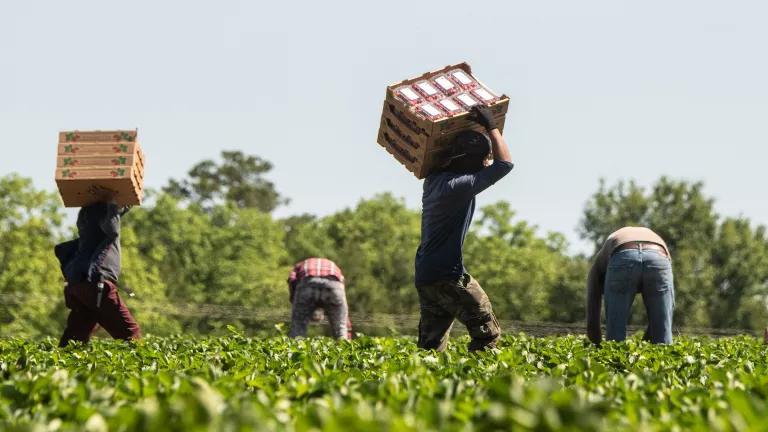NRDC Takes EPA to Court—Again—to Protect Children’s Health
The agency’s own scientists concluded that chlorpyrifos harms developing brains—but the Trump administration still refuses to ban it.

A coalition of labor and health groups, including NRDC, sued the U.S. Environmental Protection Agency today in order to force a ban on chlorpyrifos, a toxic pesticide that is commonly sprayed on various U.S. food crops, including apples, oranges, and berries. The groups are represented by EarthJustice.
“We will not stand by while the Trump administration fights to keep this poison on the food we feed our kids,” says Miriam Rotkin-Ellman, a senior scientist at NRDC.
The lawsuit comes after the Trump administration again denied the research and recently doubled-down on its refusal to ban the harmful chemical. Numerous studies—including some from the EPA’s own scientists—have tied the toxic chemical to learning disabilities, lower IQ, developmental delays, and ADHD in children. The chemical also makes its way into our water supply and travels via air, endangering farmworkers and those living in agricultural areas who face high levels of exposure. “The EPA knows this stuff is toxic—its own scientists have been sounding the alarm for years now,” Rotkin-Ellman says. “But this administration is shameless in its push to keep it on the market.”
This case against the EPA has now stretched on for more than a decade. In 2007, NRDC and the Pesticide Action Network petitioned the agency for a ban. Finally, in 2016, the Obama administration proposed to ban the chemical from the food supply. But soon after taking office, the Trump administration reversed course. In August 2018, the 9th Circuit Court of Appeals ruled that the EPA must finalize its ban of chlorpyrifos because of the risk it poses to kids—but the agency refused and appealed. Then earlier this year, in March, the full 9th Circuit Court ordered in the appeal that the EPA had to formally respond to the health, environment, and labor groups objecting to the agency’s continued refusal, only to be met with continued resistance in July.
Chlorpyrifos was banned from household products decades ago, and with the lack of federal action, states have been stepping up. Hawaii became the first state to ban the chemical last summer, and after reaffirming the pesticide’s health impacts, California has committed to ban. And this spring the New York state legislature passed a ban that awaits the governor’s signature.
Chlorpyrifos is produced by the chemical manufacturing giant Dow Chemicals, which reportedly donated $1 million to President Trump’s inauguration campaign. Its CEO has also played an advisory role to the president, leading the now-disbanded American Manufacturing Council. “We are urging the court to side with children over a powerful chemical industry with friends in high places,” Rotkin-Ellman says. “Chlorpyrifos does not belong on our food or in our fields.”


